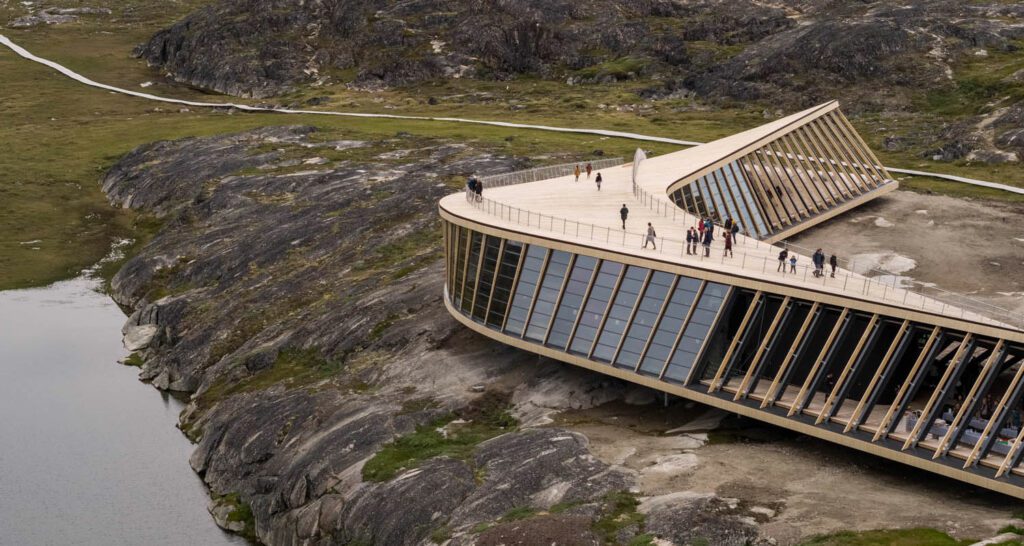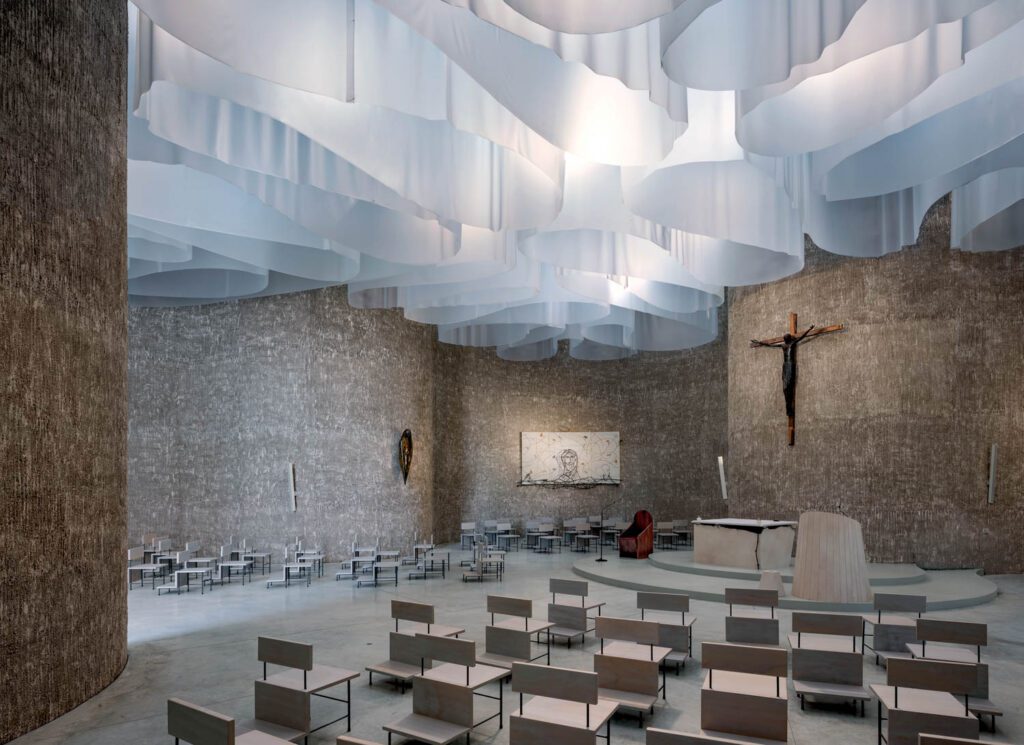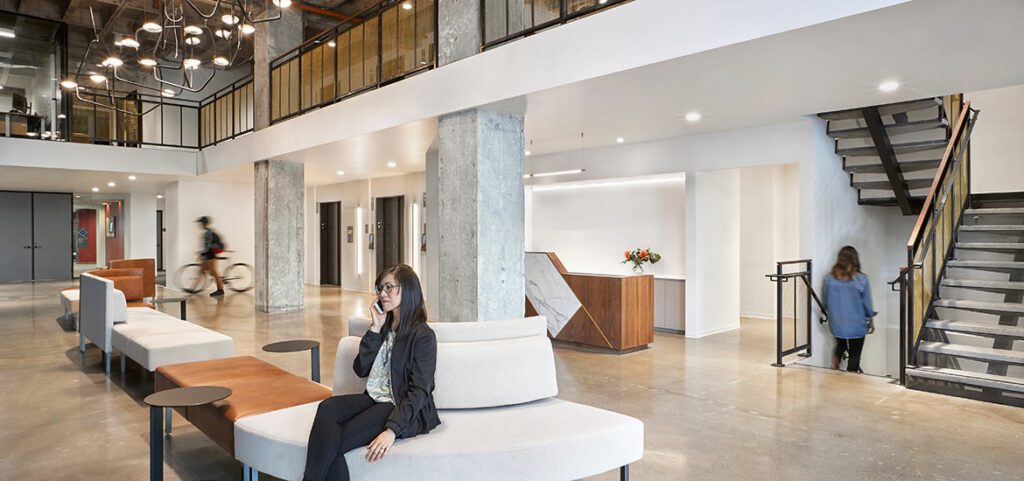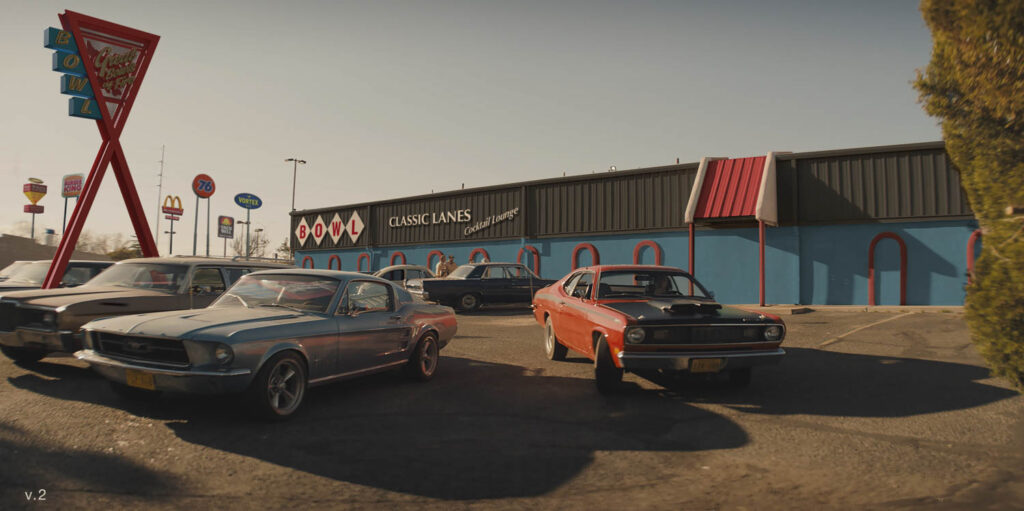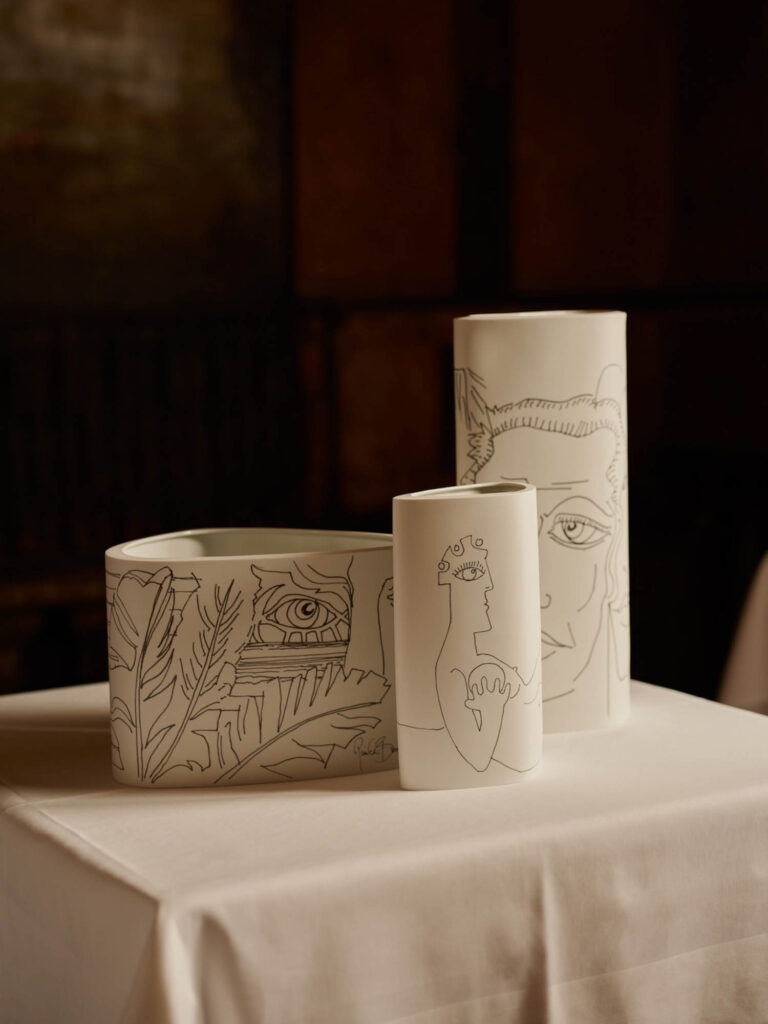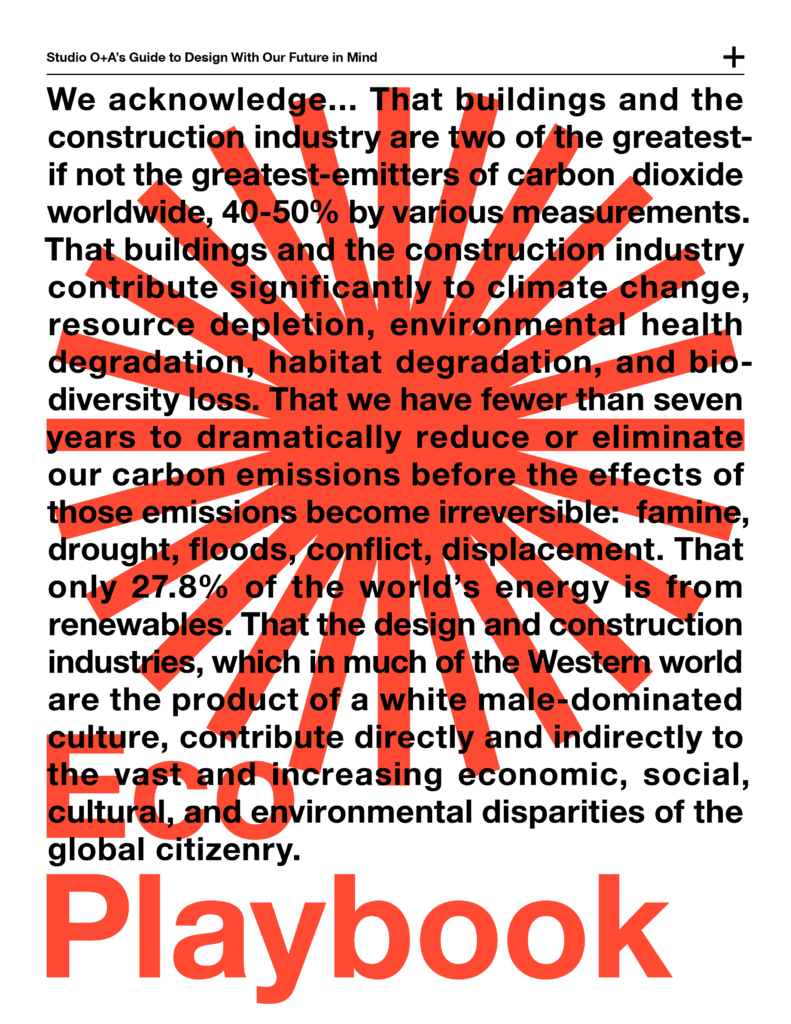
Verda Alexander Has a Plan to Help Designers Create More Sustainable Spaces
Designer and artist, Verda Alexander has known plenty of passion projects throughout her life. In a twist of kismet, the co-founder of San Francisco-based Studio O+A and president of the Northern California chapter of IIDA had another come to the fore during the long days of the pandemic. Always concerned about design’s role in the future health of the planet, she decided to put together a tangible asset to the accompany the talk that’s long been part of designers’ parlance. The result: “Eco Playbook.” It’s both a primer and a cautionary tale. “I’m super committed to this effort,” she says. No doubt.
“The pandemic was the catalyst for a lot of things,” she begins. “We had a lot of people but not a lot of work.” What started as lunch-time conversation catapulted to a team of like-minded folks embarking on a year-long research project, the firm’s third big one. “We were fired up.”
“We started out with no knowledge,” she recalls of that fall in 2021 but early on discovered “we’ve been making and designing buildings with no thought toward unlimited resources and labor.” Equality, or rather the lack of it, raised another red flag. The whole system-wide process needed evaluation and change. “Ultimately, it comes down to how we treat each other.”

A year later, the team launched its result. “Eco Playbook” outlines its manifesto as seven topics. The first addresses energy sources and passion. The latter is needed to improve aspects of the former. So, here’s a sampling of what is put forth. We have only seven years to dramatically reduce or eliminate carbon emissions before such dire affects as floods, famine, droughts, and conflict become irreversible. The planet has a carbon budget. Disparities in the built environment disproportionately effect minorities and economically disadvantaged people. A push for radical change is called for in thinking and decision making.
Engagement and action, under the aegis of Action 2020, now Action 2021, is the second tenet exhorting designers, consultants, contractors, and clients to get together and determine how to make things better. The third aspect, materials and products, encourages designers to dig deeper into their stuff, i.e. what designers particularly love, to examine origins and ties to unfair practices. Commitment to minimal waste, fourth on the list, should be a no brainer. But the call-out goes for making sure every bit of space in the floor plan has a purpose as well as ascertaining accurate measurements to make certain every bit of bit of material is put in play.

“Social equity in design is the conviction that when spaces are welcoming and functional for all people, everyone benefits.” Ergo “Eco Playbook’s” fifth statement. “O+A began to see the social ecosystem as a template for the ecosystem for the planet.” Increasingly, connection to nature and incorporating biophilia are components of wellness in design. This sixth topic is, of necessity, a hot one and connected, too, to climate change. O+A quotes a study in the Journal of Environmental Psychology stating: “connecting to nature encourages individuals to act in ways which protect the health of the planet.” Finally, “Eco Playbook” poses the definitive question: What are you going to do about it? O+A posits that adapting the design process “to the new climate realities will…enhance what makes the process unique.”
Along with Alexander and O+A, we at Interior Design are keen to help spread the word. Encouraging designers to check out the entire “Eco Playbook” on the firm’s website, while acknowledging that other firms may even be ahead of hers, Alexander is also “talking it up to professors,” as well as talking it up in her speaking engagements.
read more
Projects
30 Sustainable Projects Leading the Way for Green Design
Sustainability is more important than ever and is on its way to becoming a standard in architecture. These projects prove that green design is good for all.
DesignWire
Architect Mario Cucinella Puts His Sustainability Ethos into Practice
Through reuse and recycling, architect Mario Cucinella preaches sustainability—and practices it, too. See him at Salone del Mobile this June.
Projects
Studio O+A Gives a 21st-Century Update to Oakland’s Breuner Building Lobby
The Breuner Building has helped define Oakland’s skyline since the John Breuner Furniture Company built the Art Deco beauty in 1931. And while the city has changed radically over the last 90 years, the Breuner look…
recent stories
DesignWire
10 Questions With… Jonah Markowitz, Production Designer For HBO’s New Crime Thriller
Ride along with Jonah Markowitz to see how this production designer effortlessly builds immersive worlds for projects like HBO’s Duster.
DesignWire
Pierce Brosnan’s Enduring Passion Takes Shape In New Porcelain Series
See how James Bond actor Pierce Brosnan teams up with designer Stefanie Hering to produce a handcrafted collection of vases with proceeds going to charity.
DesignWire
Interior Design Hall of Fame Members: View by Year
From the past to the present, meet the celebrated names and trailblazers who have all been inducted into the Interior Design Hall of Fame.
